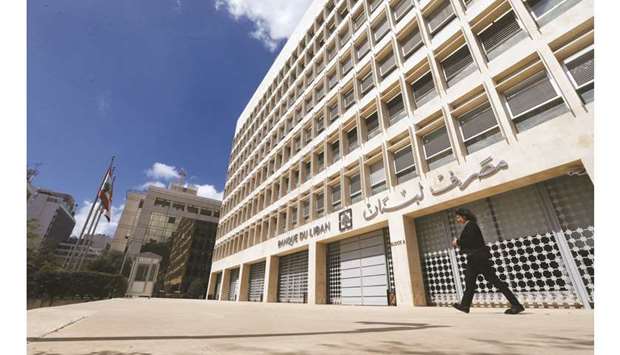Lebanon’s central bank will slash $2.9bn off the cost of debt servicing and commercial lenders will pay a one-off tax under the government’s plan that looks to wipe out the budget deficit almost entirely next year.
The central bank will cut by half the government’s cost of servicing bonds the regulator holds in Lebanese pounds, the secretary general of the council of ministers, Mohammad Makiyeh, said in a televised news conference yesterday.
The premier, the Finance Ministry and the central bank will see the programme through.
The government will also levy a 2% tax on banks’ revenue in 2019, which would amount to nearly 600bn pounds ($397mn), Minister of State for Information Technology Adel Afiouni told Bloomberg after the cabinet’s session.
“This will give us fiscal space to have enough time to get our reforms in place,” the minister, who is also a former Credit Suisse banker, said. The government won’t borrow and is committed to paying maturing debt next year.
The measures are part of a sweeping and unprecedented attempt by the government to appease protesters who have been demanding its resignation for the past five days. Ministers have also agreed to cut their own salaries by half and begin privatising the telecommunications sector.
Prime Minister Saad Hariri has announced plans to tax banks’ profits and slash the salaries of ministers by 50% to reduce the budget deficit while sparing average citizens the brunt of austerity in a bid to contain mass protests demanding the government’s ouster.
In a televised speech, Hariri said the plan also includes reducing the electricity sector’s financial deficit; creating an anti-corruption body by the end of the year; and a $100mn World Bank loan at low interest rates. Hariri said the measures would reduce the budget deficit to 0.6% of gross domestic product in 2020, compared with more than 11% in 2018.

A woman walks outside of Lebanon’s central bank building in Beirut (file). The central bank will cut by half the government’s cost of servicing bonds the regulator holds in Lebanese pounds, the secretary general of the council of ministers, Mohammad Makiyeh, said in a televised news conference yesterday.
